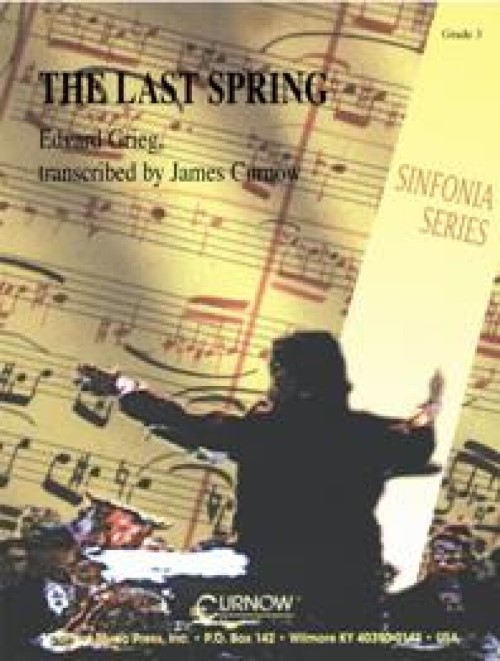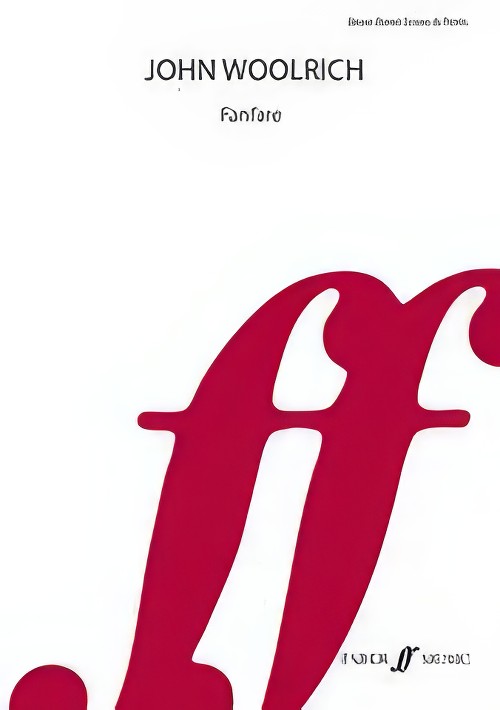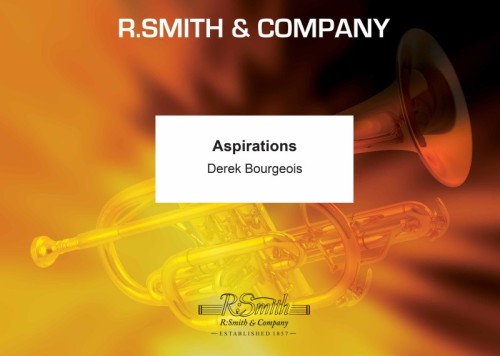Results
-
 £42.50
£42.50The Last Spring (Brass Band - Score and Parts) - Grieg, Edvard - Curnow, James
Edvard Grieg is probably the best known of all Norwegian composers. He was one of the most important figures during the nationalistic romantic period and his music always contained the essence of this beautiful Scandinavian country. The Last Spring comes from Two Elegiac Melodies for String Orchestra and this version for brass band retains all the beauty and solemnity of the original. Evoke the peaceful atmosphere of Grieg's native land with this beautiful haunting work.Duration: 4.30
Estimated dispatch 7-14 working days
-
 £40.00
£40.00Fanfare (Brass Band - Score and Parts) - Woolrich, John
This lively Fanfare was composed in 1994 for the brass band of the Guildhall School of Music and Drama Junior Department, which gave the first performance on 4 July 1994. Suitable for Youth/4th Section Bands and above. Duration: 4.00
Estimated dispatch 7-14 working days
-
 £94.95
£94.95Dances and Arias (Brass Band - Score and Parts) - Gregson, Edward
This work was commissioned by Boosey & Hawkes Band Festivals (with funds provided by the Arts Council of Great Britain) for the National Brass Band Championships of Great Britain, held at the Royal Albert Hall, London, on 7th October 1984.Dances and Arias is in one continuous movement, but as the title suggests is a series of alternating fast and slow sections as follows: Dance - Aria I - Dance (scherzo) - Aria II - Dance. The opening dance is energetic and introduces a four-note motif (on trombones) which is the basis for much of the melodic material in the work. Throughout, there is a continuous process of thematic cross-reference and transformation.The first aria unfolds a long melody on solo cornet, eventually continued by all the solo cornets, and dissolving into a shimmering harmonic background (muted cornets, horns and baritones) over which is heard a brief self-quotation on solo tuba. This leads into the second dance, a frenetic scherzo, followed by the second aria, in the style of a lament (solo euphonium, followed by two flugel horns). This builds to a powerful climax which subsides, leaving the percussion to introduce the final toccata-like dance. It transforms material from the opening before a coda brings the music to a triumphant close. The large percussion section is an integral part in the work and uses a wide variety of instruments including timpani, glockenspiel, vibraphone, xylophone, tubular bells, tom-toms, snare drum, bongos and tam-tam.The work is dedicated to my brother and sister.- Edward GregsonDuration: 14.00
Estimated dispatch 7-14 working days
-
 £44.95
£44.95Dances and Arias (Brass Band - Score only) - Gregson, Edward
This work was commissioned by Boosey & Hawkes Band Festivals (with funds provided by the Arts Council of Great Britain) for the National Brass Band Championships of Great Britain, held at the Royal Albert Hall, London, on 7th October 1984.Dances and Arias is in one continuous movement, but as the title suggests is a series of alternating fast and slow sections as follows: Dance - Aria I - Dance (scherzo) - Aria II - Dance. The opening dance is energetic and introduces a four-note motif (on trombones) which is the basis for much of the melodic material in the work. Throughout, there is a continuous process of thematic cross-reference and transformation.The first aria unfolds a long melody on solo cornet, eventually continued by all the solo cornets, and dissolving into a shimmering harmonic background (muted cornets, horns and baritones) over which is heard a brief self-quotation on solo tuba. This leads into the second dance, a frenetic scherzo, followed by the second aria, in the style of a lament (solo euphonium, followed by two flugel horns). This builds to a powerful climax which subsides, leaving the percussion to introduce the final toccata-like dance. It transforms material from the opening before a coda brings the music to a triumphant close. The large percussion section is an integral part in the work and uses a wide variety of instruments including timpani, glockenspiel, vibraphone, xylophone, tubular bells, tom-toms, snare drum, bongos and tam-tam.The work is dedicated to my brother and sister.- Edward GregsonDuration: 14.00
Estimated dispatch 7-14 working days
-
 £59.95
£59.95Aspirations (Brass Band - Score and Parts) - Bourgeois, Derek
Aspirations was especially written for young bands, and is designed to test the rhythmic and melodic skills of the players.The scoring throughout uses many ensemble groupings, producing challenging sonorities.Aspirations was the set work for the Youth Section of The National Brass Band Championships of Great Britain and was first performed at the Royal College of Music, London, on Sunday 9th October, 1983.Duration: 8.30
Estimated dispatch 7-14 working days
-
 £39.99
£39.99A Braveheart Suite (Brass Band - Score and Parts) - Horner, James - Duncan, Andrew
Mel Gibson's epic film Braveheart was a cinema hit and the music by James Horner was incredibly memorable. Andrew Duncan has taken some of these themes and created A Braveheart Suite for brass band.Suitable for Advanced Youth/3rd Section Bands and aboveDuration: 7.00
Estimated dispatch 7-14 working days
-
 £5.99
£5.99CHRISTMAS MUSIC MARCHES & SETTINGS 1st Baritone (Brass Band)
Ideal for those groups who want to 'spice up' their Christmas playing by breaking away from 'straight carols', this books includes a collection of 32 marches and arrangements for full band. Some clever and interesting settings by such names as Eric Ball, Peter Graham, Leslie Condon, Robert Redhead, Ray Steadman-Allen and more.
Estimated dispatch 7-14 working days
-
 £5.99
£5.99CHRISTMAS MUSIC MARCHES & SETTINGS 1st Horn Eb (Brass Band)
Ideal for those groups who want to 'spice up' their Christmas playing by breaking away from 'straight carols', this books includes a collection of 32 marches and arrangements for full band. Some clever and interesting settings by such names as Eric Ball, Peter Graham, Leslie Condon, Robert Redhead, Ray Steadman-Allen and more.
Estimated dispatch 7-14 working days
-
 £5.99
£5.99CHRISTMAS MUSIC MARCHES & SETTINGS 1st Trombone TC (Brass Band)
Ideal for those groups who want to 'spice up' their Christmas playing by breaking away from 'straight carols', this books includes a collection of 32 marches and arrangements for full band. Some clever and interesting settings by such names as Eric Ball, Peter Graham, Leslie Condon, Robert Redhead, Ray Steadman-Allen and more.
Estimated dispatch 7-14 working days
-
 £5.99
£5.99CHRISTMAS MUSIC MARCHES & SETTINGS 2nd Baritone (Brass Band)
Ideal for those groups who want to 'spice up' their Christmas playing by breaking away from 'straight carols', this books includes a collection of 32 marches and arrangements for full band. Some clever and interesting settings by such names as Eric Ball, Peter Graham, Leslie Condon, Robert Redhead, Ray Steadman-Allen and more.
Estimated dispatch 7-14 working days
